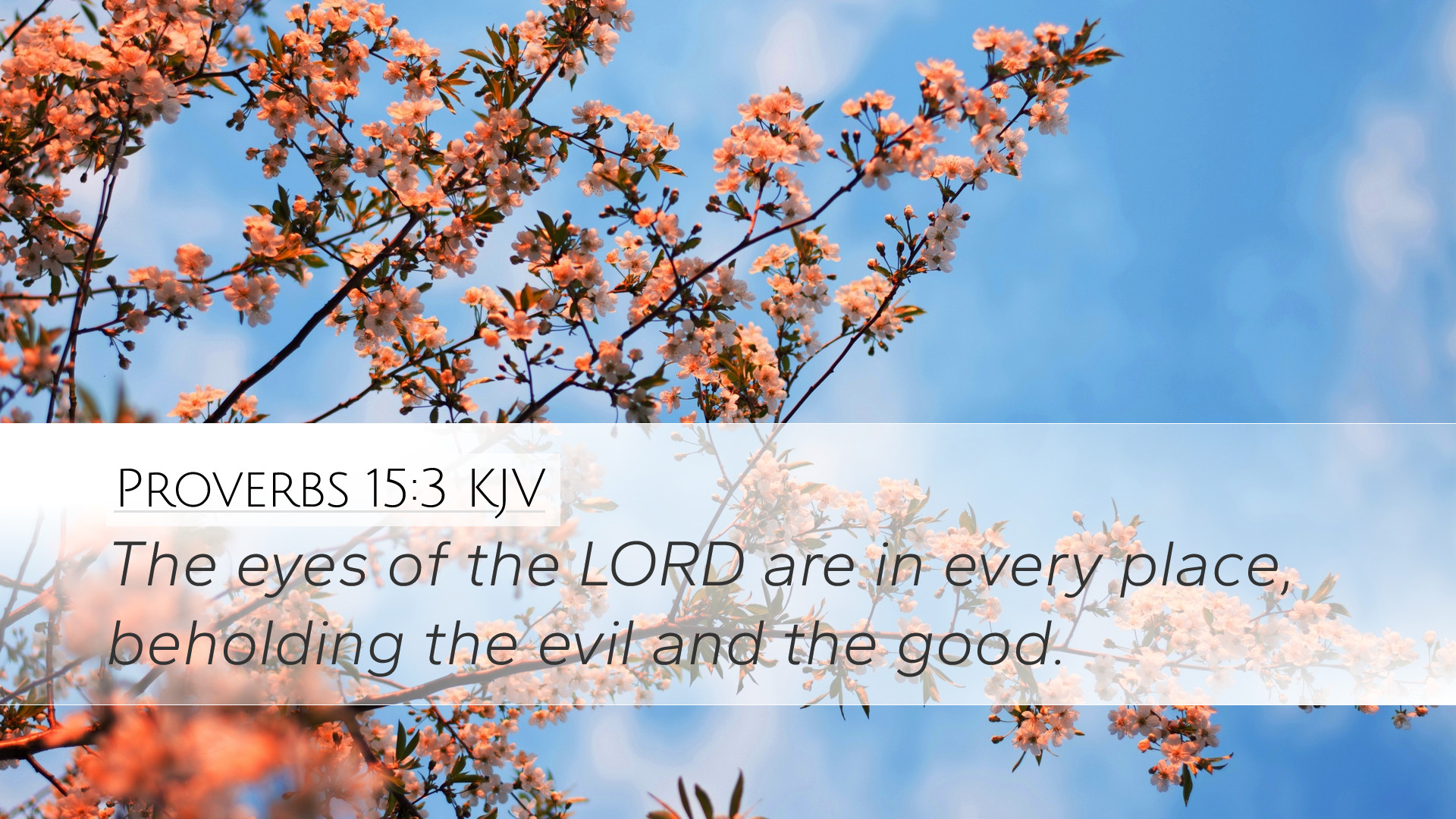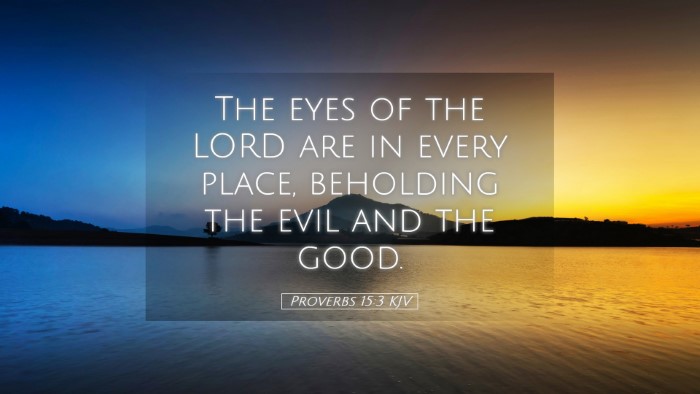Commentary on Proverbs 15:3
Verse Text: "The eyes of the LORD are in every place, keeping watch on the evil and the good." (Proverbs 15:3)
Introduction
The verse Proverbs 15:3 offers profound insights into the omniscience of God. It encapsulates the understanding that God observes and governs all aspects of human life, noting both moral conduct and the state of the heart. This commentary synthesizes theological reflections from established public domain sources to deepen the understanding of this passage.
Exegesis and Observations
This verse serves as a reminder of God's all-seeing nature. Both Matthew Henry and Albert Barnes emphasize that the profound meaning lies in the dual nature of God's watchfulness—He sees both the good and the evil. It provides comfort to the righteous, whilst it also serves as a warning to the wicked.
Matthew Henry's Commentary
According to Matthew Henry, this verse highlights the omnipresence of God. He comments that the eyes of the Lord are not merely passive observers; they are actively engaged in ‘keeping watch’ over humanity. This suggests a protective and judicial role. The righteous can draw comfort knowing that their good deeds are under divine observation, ensuring that their labor is not in vain. Conversely, it serves as a dire warning for those committing evil, as they cannot escape God's gaze.
Albert Barnes' Perspective
Albert Barnes reiterates the theological implications of God’s omniscience. He notes that the 'eyes of the Lord' imply a constant vigilance and an unwavering moral order. Barnes highlights the gravity of God's awareness concerning our behavior, asserting that every action, whether good or evil, is subject to divine scrutiny. He emphasizes that this verse calls for a life lived in accordance with divine principles, as all actions will ultimately be evaluated by the Supreme Judge.
Adam Clarke's Insights
Adam Clarke provides further elucidation by detailing the traditional Hebrew understanding of God's eye. He explains that in ancient Israelite culture, the idea of watchfulness was linked to the protective role of God over His people. Clarke also indicates that this vigilance encourages accountability among adherents of faith. Hence, the verse becomes both an assurance for believers and a caution for transgressors.
Theological Themes
Proverbs 15:3 touches upon several theological themes:
- Divine Omniscience: God's ability to see and know all things, transcending human limitations.
- Moral Responsibility: The awareness of God's watching calls for a responsible lifestyle aligned with His will.
- Justice and Righteousness: The assurance that God sees injustice and evil prompts believers to seek justice in their own lives.
- Comfort in God's Presence: For the faithful, the knowledge that God observes their struggles offers encouragement and empowerment.
Practical Applications
Reflecting on this verse has significant implications for daily Christian living:
- Living with Integrity: Knowing that God sees all inspires believers to act justly and uphold righteousness in every facet of life.
- Encouragement in Trials: The righteous can find solace in the promise that God is aware of their suffering and will ultimately vindicate them.
- A Call to Repentance: For the sinner, this verse beckons a reevaluation of life choices and an invitation to turn towards God.
- Awareness of Influence: Understanding that God observes actions reminds believers of their responsibility as representatives of Christ in the world.
Conclusion
Proverbs 15:3 stands as a powerful testament to the omnipotence and omniscience of God. It serves both as a source of comfort and a sobering reminder of the moral obligations placed upon humanity. The insights drawn from historical commentaries reinforce the idea that God's watchful care is a central theme in scriptural understanding, inviting believers to live in a manner that is pleasing to Him while also recognizing the ever-watchful gaze of the Divine.


